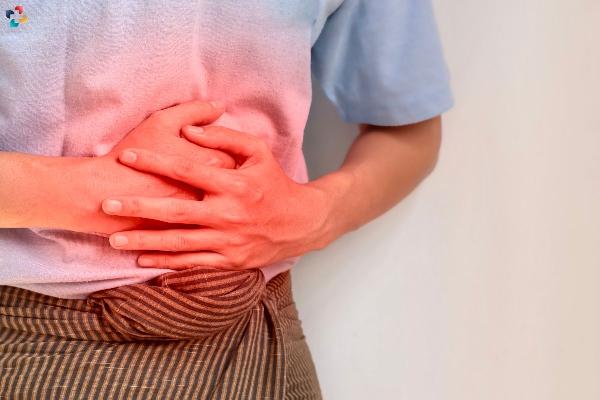Understanding the Cause of Left Upper Quadrant Pain: 20 Potential Reasons

Strong 8k brings an ultra-HD IPTV experience to your living room and your pocket.
Left upper quadrant (LUQ) pain can be a distressing symptom, prompting many individuals to seek medical advice. This pain can arise from various structures located in this region, including the stomach, spleen, pancreas, kidneys, and part of the large intestine. Identifying the cause of left upper quadrant pain is crucial for proper treatment and relief. Here, we explore 20 potential causes of left upper quadrant pain, ranging from benign to serious conditions.
Here are 20 potential causes of left upper quadrant pain:
1. Gastritis
Gastritis, the inflammation of the stomach lining, is a common cause of left upper quadrant pain. It can be triggered by infections, chronic alcohol consumption, prolonged use of NSAIDs, or stress. Symptoms often include a burning sensation in the upper abdomen, nausea, and vomiting.
2. Peptic Ulcers
Peptic ulcers are sores that develop on the lining of the stomach, small intestine, or esophagus. They can cause significant discomfort, including left upper quadrant pain, particularly after eating. Helicobacter pylori infection and long-term NSAID use are common culprits.
3. Gastroesophageal Reflux Disease (GERD)
Cause of Left Upper Quadrant Pain: 20 Potential Reasons | The Lifesciences Magazine
GERD occurs when stomach acid frequently flows back into the tube connecting the mouth and stomach (esophagus). This acid reflux can cause irritation, leading to pain in the left upper quadrant. Heartburn, chest pain, and difficulty swallowing are typical symptoms.
4. Pancreatitis
Pancreatitis, the inflammation of the pancreas, can cause severe left upper quadrant pain. This can be the cause of left upper quadrant pain. This pain often radiates to the back and is accompanied by nausea, vomiting, and fever. Chronic alcohol use and gallstones are common causes.
5. Splenic Infarction
A splenic infarction occurs when blood flow to the spleen is obstructed, leading to tissue death. This can result in sharp, localized pain in the left upper quadrant. Conditions such as sickle cell disease and blood clotting disorders can increase the risk.
6. Splenomegaly
Splenomegaly refers to an enlarged spleen, which can cause discomfort or pain in the left upper quadrant. Infections, liver diseases, and blood cancers are common causes. Patients may also experience fatigue and anemia.
7. Kidney Stones
Kidney stones can cause severe, sharp pain that radiates from the back to the abdomen and into the left upper quadrant. The pain is often sudden and intense, accompanied by nausea, vomiting, and blood in the urine.
8. Left-Sided Diverticulitis
Diverticulitis occurs when small pouches (diverticula) in the digestive tract become inflamed or infected. It is the one of When it affects the left side of the colon, it can cause significant left upper quadrant pain, along with fever and changes in bowel habits.
9. Gastric Cancer
Gastric cancer, although less common, can present with persistent left upper quadrant pain. Other symptoms may include unexplained weight loss, loss of appetite, and vomiting. Early diagnosis is critical for better outcomes.
10. Irritable Bowel Syndrome (IBS)
IBS is a functional gastrointestinal disorder that can cause chronic pain in the left upper quadrant. Symptoms vary but often include bloating, diarrhea, and constipation. Stress and dietary factors play a significant role in exacerbating symptoms.
11. Left Lower Lobe Pneumonia
Pneumonia affecting the lower lobe of the left lung can cause referred pain to the left upper quadrant. Symptoms typically include fever, cough, difficulty breathing, and chest pain.
12. Heart Attack
A heart attack can sometimes present with pain in the left upper quadrant, along with chest pain, shortness of breath, and nausea. This atypical presentation requires immediate medical attention.
13. Costochondritis
Costochondritis is the inflammation of the cartilage that connects a rib to the breastbone. This can cause sharp, aching pain in the left upper quadrant, particularly when taking deep breaths or pressing on the affected area.
14. Herpes Zoster (Shingles)
Cause of Left Upper Quadrant Pain: 20 Potential Reasons | The Lifesciences Magazine
Shingles, caused by the reactivation of the chickenpox virus, can lead to painful, blistering rashes along the nerve paths. If the affected nerves are located in the left upper quadrant, significant pain can occur even before the rash appears.
15. Hiatal Hernia
A hiatal hernia occurs when part of the stomach pushes up through the diaphragm into the chest cavity. It can be the cause of left upper quadrant pain. This can cause pain in the left upper quadrant, heartburn, and difficulty swallowing.
16. Splenic Abscess
A splenic abscess, a collection of pus in the spleen, can cause severe left upper quadrant pain, fever, chills, and tenderness. It is a rare but serious condition often associated with infections elsewhere in the body.
17. Abdominal Aortic Aneurysm (AAA)
An AAA is an enlargement of the aorta, the major blood vessel that supplies blood to the body, which can cause pain in the left upper quadrant if it expands or ruptures. Symptoms include sudden, severe pain, a pulsating abdominal mass, and hypotension.
18. Colon Cancer
Colon cancer can cause left upper quadrant pain if the tumor is located in the transverse or descending colon. Symptoms may include changes in bowel habits, blood in the stool, and unexplained weight loss.
19. Gastric Volvulus
Gastric volvulus is a condition where the stomach twists on itself, leading to severe pain in the left upper quadrant, nausea, and vomiting. It is a surgical emergency requiring prompt treatment.
20. Functional Dyspepsia
Cause of Left Upper Quadrant Pain: 20 Potential Reasons | The Lifesciences Magazine
Functional dyspepsia, also known as non-ulcer stomach pain, can be the cause of left upper quadrant pain without an identifiable cause. Symptoms often include bloating, nausea, and early satiety.
Prevention and Management
While some causes of left upper quadrant pain are beyond control, lifestyle modifications can help prevent and manage many conditions. Here are some tips:
Dietary Changes: Avoiding foods that trigger gastritis, GERD, or IBS can significantly reduce symptoms. A diet rich in fiber, fruits, and vegetables while low in fatty, spicy, and acidic foods is beneficial.
Regular Exercise: Staying active helps maintain a healthy digestive system and can prevent conditions like diverticulitis and obesity, which are linked to many abdominal pain causes.
Hydration: Drinking plenty of water can prevent kidney stones and help manage conditions like IBS.
Stress Management: Stress can exacerbate many gastrointestinal conditions. Techniques such as meditation, yoga, and deep breathing exercises can help.
Avoid Smoking and Excessive Alcohol: Both can irritate the stomach lining and contribute to conditions like gastritis and peptic ulcers.
Regular Medical Check-ups: Regular visits to the doctor can help detect potential issues early, especially for conditions like colon cancer or gastric cancer.
When to Seek Medical Attention?
If you experience left upper quadrant pain that is severe, persistent, or accompanied by other concerning symptoms such as fever, jaundice, weight loss, or blood in your stool, it is crucial to seek medical attention immediately. Early diagnosis and treatment can prevent complications and improve outcomes.
By understanding the potential causes of left upper quadrant pain and taking proactive steps in managing your health, you can alleviate symptoms and improve your overall well-being.
Conclusion
Determining the exact cause of left upper quadrant pain requires a thorough evaluation by a healthcare professional. This includes a detailed medical history, physical examination, and potentially imaging studies or laboratory tests. Understanding the cause of left upper quadrant pain is essential for effective management and relief. If you experience persistent or severe pain, it is crucial to seek medical attention promptly to rule out serious conditions and receive appropriate treatment.
Note: IndiBlogHub features both user-submitted and editorial content. We do not verify third-party contributions. Read our Disclaimer and Privacy Policyfor details.


